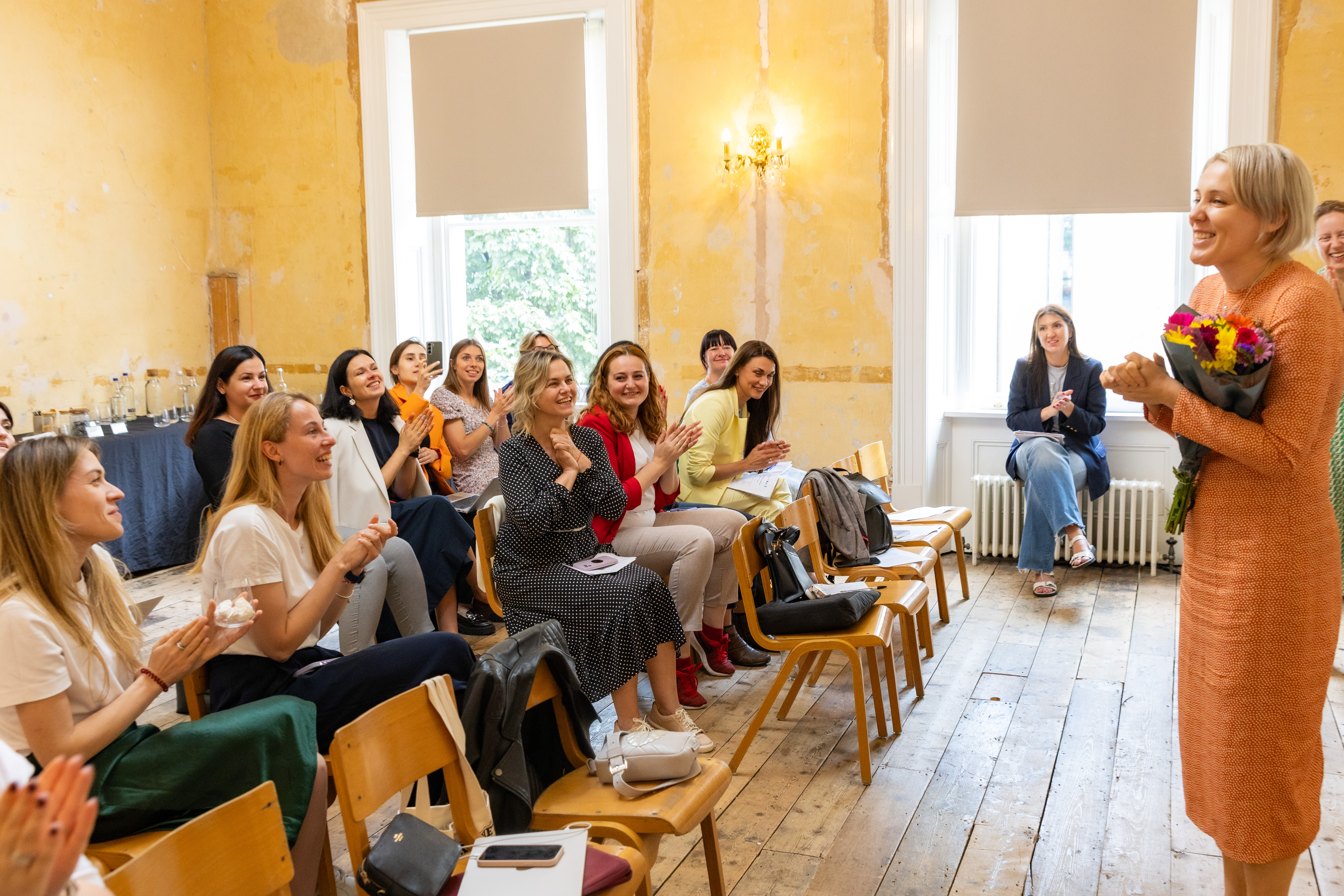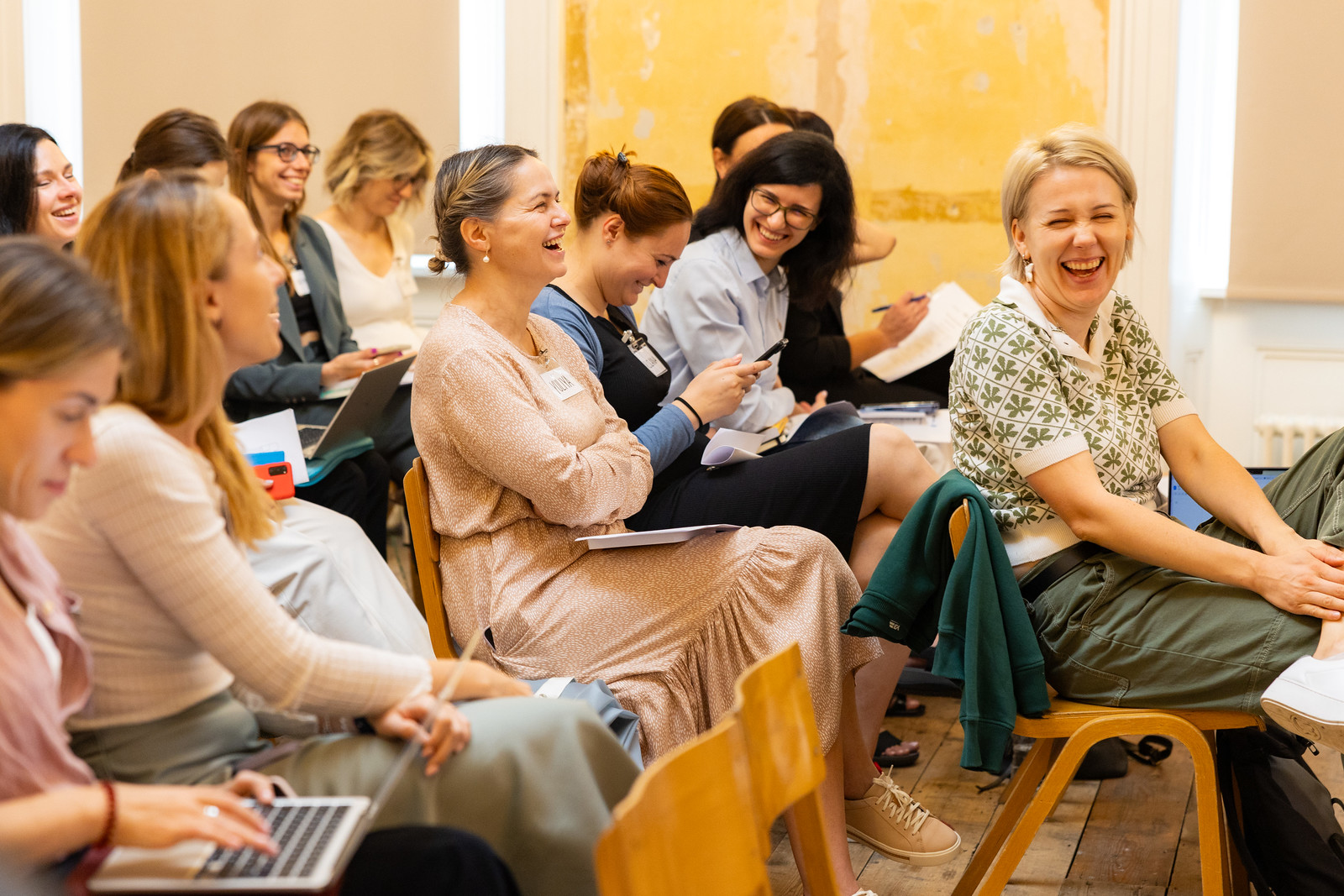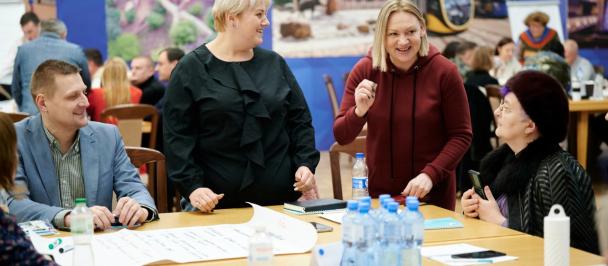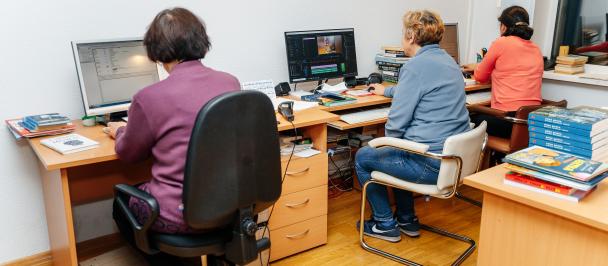Prioritising soft skills development to support more women leaders in Ukraine
What I learned organising the leadership programme for women public servants in Ukraine
September 6, 2023

UNDP, with funding from Sweden, launched a Leadership Programme for women involved in digitalisation of public institution to develop their soft skills.
By Kateryna Onyiliogwu, Consultant, UNDP Ukraine.
Originally published on website Apolitical
- The problem: Despite the high number of women civil servants in Ukraine and globally, there is a severe lack of women leaders in the public sector.
- Why it matters: Women leaders are often responsible for gender equality, family and children affairs, social inclusion and protection in government, so their absence from leadership in other spheres, such as digitalisation, is troubling.
- The solution: A leadership programme for women to increase their representation in government and support their needs.
As highlighted in the 2022 report by UN Women, a concerning lack of women leaders persists in the public sector globally. For instance, only four of the 19 ministers in Ukraine’s Cabinet of Ministers are women. Moreover, despite the fact that over 75% of civil servants in Ukraine are women, they occupy only 33% of the highest-ranking civil service positions. As government ministers worldwide, women are mainly responsible for gender equality, family and children affairs, social inclusion and protection. Meanwhile, digital transformation in government remains male-dominated, reflecting the realities of the IT sector in both the public and business settings. Nonetheless, Ukraine is notable for the active participation of women professionals in the digital transformation of government at all levels, paving the way for future government services and, crucially, the increased representation of women in leadership positions within the sector.
A leadership programme to support women
To support the advancement of women professionals involved in digitalising public services in central government bodies, UNDP in Ukraine, with financial support from the Government of Sweden, developed a leadership programme. This programme supported 16 specialists from the Ministry of Digital Transformation, the Ministry of Internal Affairs of Ukraine, the State Tax Service and the National Health Service, among others. The programme consisted of several days of training and peer-to-peer learning on leadership and people management, developing emotional intelligence, stress resistance and lots more.
The programme produced numerous valuable insights into preconceptions regarding women's leadership, and into the programmes to support them that have become more common across the globe.
Challenging traditional leadership ideas
It is common for women occupying leadership positions to question their leadership abilities due to traditional gender biases, which prioritise stereotypically masculine traits such as assertiveness, competitiveness, and a more hierarchical approach to decision-making. Despite trends towards embracing more inclusive leadership styles such as transformational, participative and servant, conventional leadership models persist – particularly in government institutions. The programme aims to challenge traditional leadership styles, discover each participant's leadership approach and recognise their further leadership potential. The emphasis on a more collaborative, empathetic and inclusive leadership style, cultivating positive perceptions about the participants' leadership abilities, is at the centre of the programme.
Prioritising soft skills development
During a programme's design phase, there is often a desire to impart as much knowledge as possible, but it is crucial to recognise the limitations of any learning programme. The participants of the UNDP programme were true innovators, having developed digital solutions for Ukraine during the war, a unique condition not shared by other countries. Given their outstanding technical skills, focusing on soft skills, such as effective communication with team members, motivating others and emotional intelligence, and countering professional burnout were identified as shared learning needs. Some studies suggest that emotional intelligence is four times as important as technical abilities for leadership positions. The dynamic participation of women during these sessions of the programme was a testament to the effectiveness of its targeted approach.
Providing space for reflection
While designing the programme, the aim was to move from traditional learning towards more interactive learning, with plenty of space to reflect. Since all of the participants were accomplished professionals with plenty of knowledge and experience, providing time and space for group discussions and self-reflections had more value for leaders. Women leaders often bear significant responsibilities both in the workplace and at home, hence finding time and space to reflect on their emotions, management practices and behaviours can prove challenging. Consequently, leadership development programmes should prioritise the provision of such space for reflection to enable effective personal and professional growth. Reflection is a vital tool for developing self-awareness and awareness of others; thus, a programme should be designed so as to incorporate it throughout the course.
Facilitating a safe environment for peer exchange
Women face many barriers, such as gender biases, stereotypes and other challenges associated with juggling their roles as professional leaders and their responsibilities at home. When designing the programme, we were mindful not to create an artificial space dedicated to discussing these issues. Instead, the focus was on facilitating a safe, warm and friendly atmosphere where women felt that they could discuss these barriers openly and without judgement, and share how to overcome them. This approach worked, and organically facilitated these discussions. While the women worked in different government departments, they shared similar problems as leaders. There is a scarcity of existing forums and opportunities for such discussions among women professionals. Still, a careful and empathetic programme design allows for the discussion of leadership challenges, and strategies for addressing the unique issues women leaders face.
The leadership programme for women in the government’s digital transformation finished in early August with a study visit to the United Kingdom. The visit inspired the participants, and exposed them to more women leaders abroad who also create digital solutions to tackle social problems. We believe that learning from real, inspirational women from abroad will foster growth for Ukrainian digital leaders.
And as for the organisers, this provided them with another opportunity to reflect on the design of the programme, and on how to scale it up to reach more women leaders in future.

 Locations
Locations




